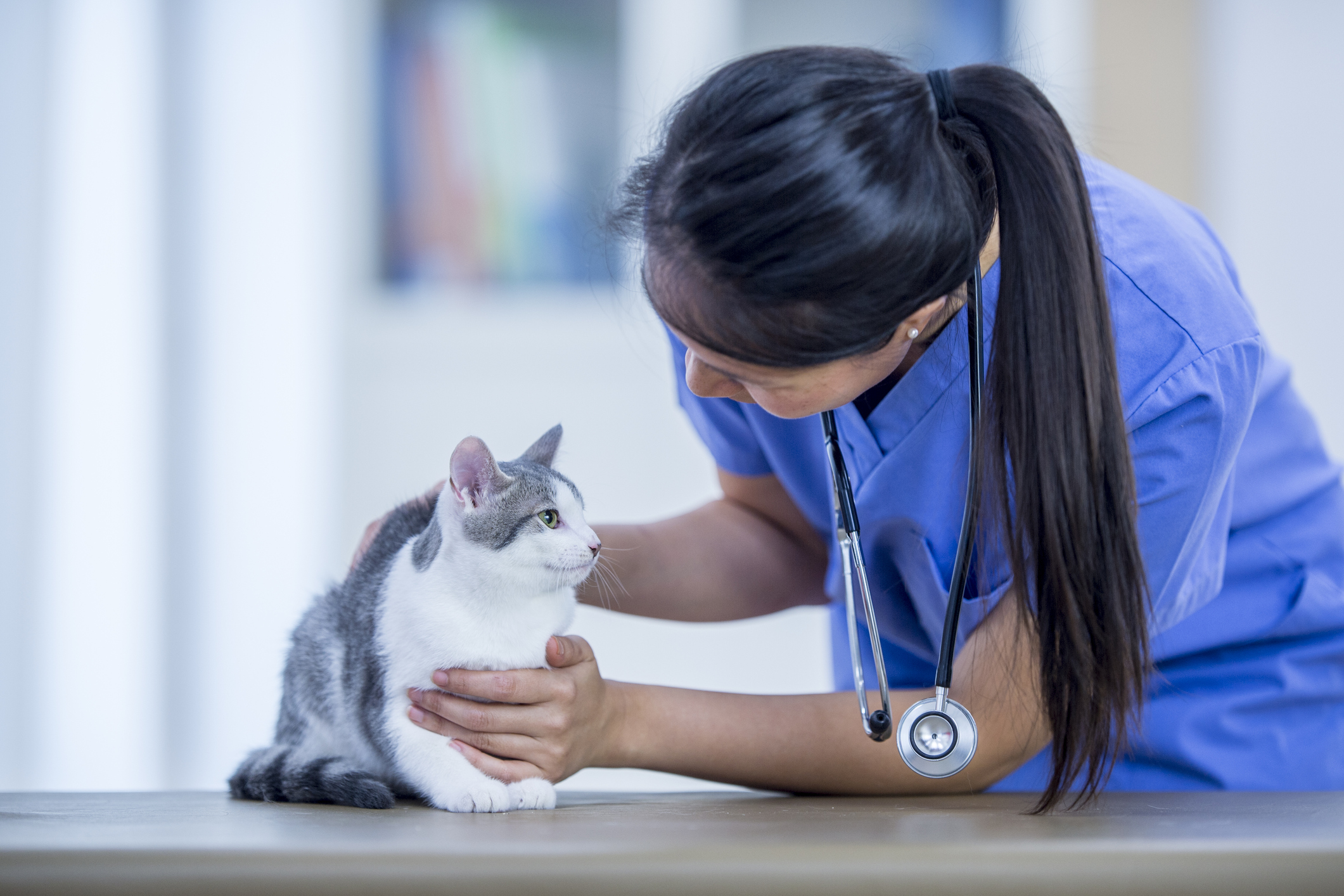
7 Reasons for Your Cat’s Unexplained Weight Loss
One problem many cat owners are used to hearing about is excessive weight gain in their furry friends, largely due to overfeeding. But on the flip side, unexplained weight loss can be just as big of a problem. If your kitty is losing weight without being on a diet, it’s usually a sign of an underlying health issue.
Unexplained weight loss is a red flag you shouldn’t ignore. Unfortunately, there are many potential causes for weight loss in cats—some more obvious than others. After you’ve noticed your cat looking slimmer, pay attention to their behavior, their appetite and any other strange symptoms to help your vet get to the bottom of the issue.
The following problems are some of the most common causes of weight loss in cats.
- Stress: If your kitty stops eating or merely picks at their food day after day, they’re bound to lose weight after some time. One major reason for this is not a disease or infection, but stress. Many things can send cats into a nervous tailspin and hamper their appetite. Perhaps your home is loud and frightening to them, you’ve recently added a new member to the family or your pet’s food bowl is in an undesirable location. Rectifying stressors in the home might help encourage your cat to eat and return to a healthy weight.
- Oral health problems: Another common reason cats might avoid eating and begin to lose weight lies in the mouth. Pain in the teeth or gums can make it difficult for pets to chew their food, potentially reducing the amount they eat each day and causing weight loss. Other signs of gingivitis or tooth pain might include drooling, tilting the head or chewing on one side while eating, dropping food out of the mouth and the presence of red or swollen gums.
- Hyperthyroidism: In some cases, your pet might be eating all their food—and even begging for more—but still be losing weight. If your kitty has developed a ravenous appetite but appears to be getting thinner, the problem might be hyperthyroidism. This condition affects the way your cat’s body processes energy, increasing their metabolism to unhealthy levels and causing them to shed weight.
- Intestinal parasites: Sometimes, intestinal worms like tapeworms and roundworms can block the absorption of nutrients your cat eats and cause gastrointestinal problems like diarrhea, instead. This can lead to weight loss, as well as issues like bloating and gas. Worms may even be visible in your cat’s stool.
- GI problems: Digestive issues, including food allergies, food sensitivities or irritable bowel syndrome, can cause inflammation and irritation in the gut. When this happens, the colon may have a harder time digesting and absorbing nutrients from your cat’s food, leading to weight loss. These problems are also often associated with bloating, stomach pain, gas and diarrhea.
- Diabetes: Diabetes, which affects your cat’s cells’ ability to take in sugar and use it for energy, may also cause unexplained weight loss while your cat continues to eat their food. Because their cells can’t derive energy from blood glucose, diabetic cats shed weight rapidly and are often lethargic and sleepy. If your cat is losing weight, drinking a lot of water and urinating frequently, they might be suffering from diabetes.
- Cancer: A reduced appetite and/or rapid weight loss can also be a sign of a severe underlying disease like cancer. Sadly, this symptom might indicate that your kitty’s cancer is spreading or in an advanced stage where it has begun to affect the organs.
Weight loss in cats can be a good thing if your kitty is getting a little overweight, but this should always be intentional, controlled and carefully monitored to make sure your cat remains healthy. If your cat has begun to lose weight without a vet-recommended caloric deficit or if they have stopped eating, something more serious might be going on.

Aside from the presence of a few additional symptoms, the underlying cause of unexplained and unintentional weight loss is difficult to identify without an examination and testing from your vet. If you believe your cat has lost weight, you should make an appointment with your vet right away. A few simple tests can help your vet understand why your kitty isn’t eating or absorbing nutrients properly.
Once a diagnosis is reached, follow your vet’s instructions to rectify the problem and get your furry friend back to a healthy weight.


